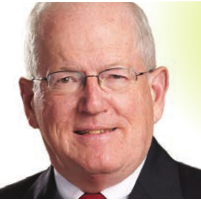A mid-year report on the health of the wideranging sector is a mixed one
As this column has reported previously, the nonprofit sector in New Hampshire, with approximately 10,000 entities — ranging from Dartmouth College and Dartmouth Health to very small entities and soup kitchens — constitutes a huge part of our economy. So, how is the sector doing in the first half of 2023?
In respect to the largest parts of the sector, healthcare and higher education, the report is mixed.
There are a significantly reduced number of 18-year-olds graduating from high school now than in the past in New England. That means there are more institutions chasing a smaller pool of traditional students. Add to that the post-pandemic trend for others to delay college and enter the workforce, and the challenges faced by colleges in the state are apparent.
Institutions have faced these challenges in different ways. Dartmouth probably has no issues as a premier part of the Ivy League. Southern New Hampshire University, now the largest in the world in terms of enrollment, has a large budget, significant surpluses and the ability to address the various challenges. UNH seems OK. Keene and Plymouth are question marks as they address reduced enrollments. The small private colleges are the most challenged.
Those colleges are significant players in their local economies, and they are employing various strategies.
New England College has closed the former NH Institute of Art campus, alleging it can provide those students the same experience in Henniker, but leaving a hole in downtown Manchester. Colby-Sawyer has an exciting partnership with Dartmouth Health, a new health sciences facility, and many high-quality programs in its new graduate programs competing with similar sounding new programs from other schools with differing offerings in terms of quality.
Healthcare institutions may have the most interesting situation. Among the largest nonprofits in the state, hospitals are increasingly aligning themselves with large healthcare systems. Recently, the attorney general’s office has denied requests by Exeter Hospital to combine with Massachusetts General Hospital, and Catholic Medical Center and its related institutions to combine with Dartmouth Health, both on antitrust grounds. Exeter currently seeks to align with Beth Israel/Leahy Health, and CMC reportedly is seeking alternate alliances.
It is interesting to question why New Hampshire-based alliances have been turned down at the same time certain regional combinations have been rejected, when the standalone institutions seem to believe that proceeding alone is not sustainable.
Other, smaller healthcare entities are also subject to AG review, and a consistent policy by the state seems to be required when considering mergers or acquisitions.
At the other end of the nonprofit spectrum, small nonprofits continue to proliferate, often under the radar screen of most of us.
Examples of those invisible to most of us are Dismas Home, a small but powerful home for formerly incarcerated women with substance abuse or mental health issues, on the West Side of Manchester. Also, many veterans support groups have sprung up in the state, often from organizations of motorcycle riders or others supporting veterans. Arts groups, often unknown to those who are not participating, offer their members a chance to learn, participate and improve their skills, whether in graphic art or music.
Recently, this writer had the chance to be introduced to the New Hampshire Fiddle Ensemble, a small but active group of musicians that provides instruction, opportunity to perform and learn, to people from teenage to old age, across the state and Maine.
Larger nonprofits are establishing major projects in the state, such as Easterseals New Hampshire’s Veterans Campus in Franklin, Senior Living home in Rochester and significantly improved special education campus in Manchester. The state’s system of funding through “area agencies” continues to be under scrutiny in light of federal requirements, and remains controversial among those familiar with the issues.
Significant arts organizations, such as the Currier Museum in Manchester, continues to evolve, as it changes from a trust to a corporation and seeks new leadership after the departure of former executive director Alan Chong, who did so much to involve it in the community.
Finally, the religious institutions, so important to our moral and personal lives, face the challenges of fewer adherents, closing churches and search for an audience, when arguably they are needed now, more than ever.
Brad Cook is a Manchester attorney. The views expressed in this column are his own. He can be reached at bradfordcook01@gmail.com.